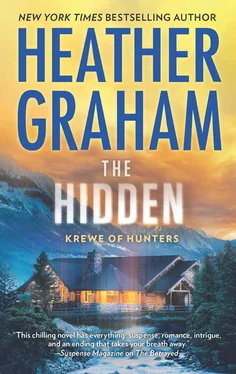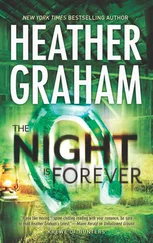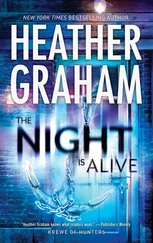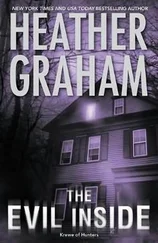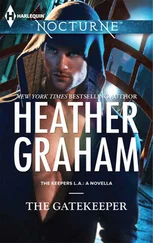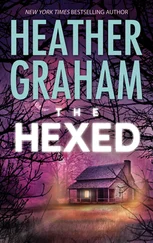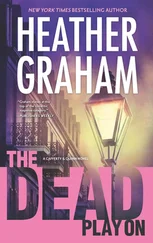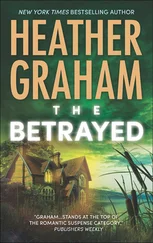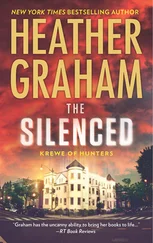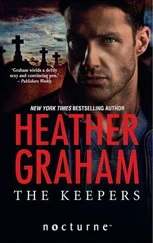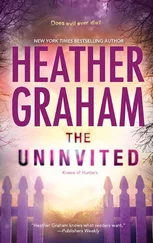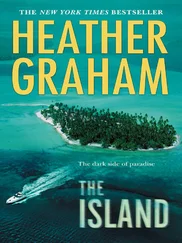“Okay, let me get this straight. They’re holding you on suspicion of murder because of pictures that were on your camera but that aren’t there now?” Diego asked.
“Yes.”
“Then they have nothing.”
“Except Ben saw the pictures, too, and he told the police about them, so they think I erased them.”
“They need to get the camera to a police tech and examine the memory card.”
“They already have.”
“And they’re still holding you?”
“Yes!”
“I’ll be there as soon as I can. I’ll make some calls, get the right people involved. Just don’t go snapping at anyone until I get there and can straighten things out.”
“I don’t snap.”
“You do when your pride is hurt. But don’t let them get to you, okay? Just be honest with them.”
“Yes, of course.”
“I’ll be there,” he promised.
“Thank you,” she whispered.
And then she was gone.
He suddenly found himself thinking about the refugees they had rescued and the words the old woman had said to him.
But you—you must be very careful. And you must go where you are called. You understand? You will know. You must go where you are called.
He’d always been open to possibilities in life, but he’d never been superstitious or a believer in omens.
But now...
It was time to join the Krewe.
He headed back inside to find Brett, and he prayed that the Krewe really did operate as efficiently and swiftly as he’d heard.
Because with or without official benediction, he was heading west.
He found Brett talking to Matt Bosworth, a longtime Krewe agent, and pulled them aside.
“This Krewe thing—I want in. But first I need help.”
“What is it?” Brett asked.
“I’ve got to get to Estes Park, Colorado, fast. As fast as possible. It’s Scarlet. She’s in trouble. They’re holding her for murder.”
Diego was amazed at the speed with which things happened after that. In short order their transport was set up for early the following morning, and he still had a few hours left to sleep. Luckily he’d taught himself how to sleep in any circumstances, even in the middle of a case.
But that night his sleep was disjointed and troubled. His dreams were of the old woman, and of Scarlet walking toward him through a fog.
A fog filled with the faces of the nameless dead.
* * *
The one place Scarlet had never expected to be in Estes Park was an interrogation room at the police station.
She understood that she wasn’t under arrest, at least not yet. Officially, she had only been asked in for questioning. But the questioning, she quickly realized, was intended to trip her up and lead to her arrest.
Her camera was with the police techs, and she really did understand why they suspected her and didn’t blame Ben for being so shocked that he hadn’t been able to stop himself from talking about the pictures. She hadn’t been allowed to speak with him, but she had seen him and Trisha, arm in arm, standing on the porch together, looking as if they’d been hit by a sledgehammer.
Meanwhile, she was reeling from the fact that two people had been found murdered right where the majestic elk had been standing earlier. Right where the bodies had been in the pictures.
And then there was that wacko in town who had warned her to be careful and had said she was “one of us,” whatever that might mean.
In one day, her world had gone mad.
“Tell me again about your day, Mrs. McCullough,” her interrogator said. Lieutenant Gray was somewhere between thirty-five and forty. He’d started out in a suit, but his jacket was gone now, his sleeves rolled up. His hair was military short, and his eyes were tired, his face haggard. His name fit him very well, she thought.
Though she had told him a dozen times that she was divorced, he insisted on calling her Mrs. McCullough. Somehow it seemed especially painful to hear that name tonight.
They never would have treated her like this if Diego was there, she thought.
And it was true. He would have stopped them cold.
She had told Lieutenant Gray as much. He hadn’t been impressed.
“The guy divorced you, huh?” he’d said at one point, his tone implying that whoever her husband had been, he’d been smart to separate from her.
She felt like a little kid, desperately hoping that someone bigger and tougher really would come to defend her.
And he would come, wouldn’t he? She’d made him her first phone call, and miraculously, he’d answered. He’d certainly sounded as if he intended to get here as soon as possible.
By morning, she hoped.
“Mrs. McCullough?” Gray repeated. “Pay attention. Tell me about your day again.”
“I woke up. I showered. I made tea. I had a bowl of cereal. I checked my email,” Scarlet said. “I went downstairs and spent the morning cataloging a display case of Civil War weapons. I inspected each for its condition, which I noted in the records. I went through the old display cards to find out when each piece was received by the museum. At noon I went back upstairs to my apartment and ate a tuna fish sandwich. No, wait, it was closer to twelve thirty, I think. But the sandwich was definitely tuna,” she said, trying very hard to maintain her temper. “At one o’clock I was back downstairs. I’ve been making notes on the different mannequins, their composition, the year they were donated to or commissioned by the museum or, before the museum’s funding, by the current owner of the Conway Ranch during the years when it was only a private collection. I began working on that project soon after I got here, about two months ago.”
“How late did you work?” he asked her.
“At four thirty I decided it was time to quit for the day. I went back upstairs and got my camera—I purchased it at the airport in Miami when I was coming out here. I have the receipt somewhere in the apartment. Wait—no,” she added, furrowing her brows. “I think it was more like four forty-five. And I didn’t go outside right away. I checked my email again first. Then I went out to take pictures. I saw a bull elk, who was practically posing for me. After that I went back to the ranch, where I talked to Ben Kendall. On the way I saw Angus Fillmore, Terry Ballantree and the Bartons down by the stables. Oh, and...”
“And?” he prompted.
“Horses,” she said gravely. “There were horses at the stables.”
He sat back. “I don’t think you understand the trouble you’re in,” he said severely.
She shook her head. “Why? Over pictures that don’t exist? That we thought we saw hours before the murders probably took place?”
She didn’t know that for a fact, but it had to be true. There certainly hadn’t been any bodies there when she’d taken the pictures.
He pointed a finger at her. “Ben Kendall saw those pictures. They existed—and you erased them as soon as you realized what you’d shown him.”
“Do you want me to tell you about the rest of my day again?” she asked.
“Go on—but we might be where we need to be already.”
“You have to be kidding.”
“Do I look like I’m joking?”
“I went back to the museum. I went upstairs. I heard a thump. I called Ben, wondering if he’d given the key to someone so they could look around the museum. He said he hadn’t. Then he came over and we looked around together. We saw that the statue of Nathan Kendall had fallen over, so we picked it up. He talked about putting in an alarm system, then went back to the house. I got my things and went into town for dinner. I can give you a list of the places I went and the people I talked to.”
He shoved a pad and pencil toward her. “I’ll take it,” he said grimly.
Читать дальше
